- Home
- Lisa Gardner
Hide Page 6
Hide Read online
Page 6
The clerk, an older woman, asked me if my name was Annabelle.
For a moment, I couldn’t speak. I almost ran out of the store. I could not be Annabelle. It was very important I not be Annabelle. My father had told me this over and over again.
“For a friend,” I finally managed to whisper.
The woman smiled at me kindly and wrapped my prize in layers of protective tissue.
Outside the store, I tucked the mug in my backpack next to my schoolbooks, then returned to school grounds. A minute later, my mother arrived in our new used station wagon, back loaded with groceries, fingers tapping absently on the steering wheel.
I felt an agonizing wave of guilt. I was sure her gaze saw right through the blue vinyl of my backpack. She was staring at my mug. She knew exactly what I had done.
Instead, my mother asked about my day. I said, “Fine,” and climbed into the front bench seat beside her. She never looked in my bag. Never asked about the mug. She simply drove us home.
I kept the pink mug hidden behind a pile of outgrown clothing on the top shelf of my closet. I would bring it down at night, when my parents thought I was sleeping. I would take it into bed, hiding under the covers and admiring the pink, pearlescent sheen under the glow of a flashlight. I would run my fingertips over the raised brushstrokes of flowers, butterflies, kitten. But mostly I traced the name, over and over again.
Annabelle. My name is Annabelle.
About six weeks later, my mother found it. It was a Saturday. My father was working. I think I was watching cartoons in the family room. My mother decided to clean up a little, taking down the pile of clothes to trade in at the secondhand store where we purchased most of our things.
She didn’t scream. Didn’t yell. In fact, I think what finally alerted me was the silence, the total utter silence, compared to the usual white noise of my mother puttering around the tiny apartment, folding laundry, banging pans, opening and shutting cupboard doors.
I had just climbed up off the gold shag carpeting when she appeared in the doorway, holding my treasure in her hand. She looked stunned but composed.
“Did someone give this to you?” she asked me quietly.
Wordlessly, heart thumping in my chest, I shook my head.
“Then how did you get it?”
I couldn’t look her in the eye and tell my story. Instead, I scuffed my toes against the carpet. “I saw it. I…I thought it was pretty.”
“Did you steal it?”
Another quick head shake. “I saved my milk money.”
“Oh, Annabelle…” Her hand flew to her mouth. To show me she was appalled, even horrified? Or to cover the unforgivable sin of saying my name?
I wasn’t sure. But then she held out her arms, and I ran to her and held on to her waist very hard, and started crying myself because it felt so nice to hear my mother say my real name. I had missed hearing it from her lips.
My father came home. Caught us huddled like coconspirators in the family room, mug still clutched in my mother’s hand. His response was immediate and thunderous.
He grabbed the pink ceramic cup from my mother and shook it in the air.
“What the hell is this?” he roared.
“I didn’t mean—”
“Did a stranger give this to you?”
“N-n-no—”
“Did she give this to you?” Finger pointed at my mother, as if somehow she was even worse than a stranger.
“No—”
“What the hell are you doing? Do you think this is a game? Do you think I gave up my post at MIT, that we are living in this shitty little dump of an apartment because of some game? What were you thinking?”
I couldn’t speak anymore. I just stared at him, cheeks flushed, eyes wild, knowing I was trapped, wishing desperately for some means of escape.
He turned on my mother. “You knew about this?”
“I just found out myself,” she said calmly. She put a hand on his arm as if to soothe him. “Russ—”
“Hal, the name is Hal!” He shook her hand away. “Christ, you’re nearly as bad as she is. Well, I know how to put a stop to this.”
He pounded into the kitchen, yanked open the drawer under the phone, pulled out a hammer.
“Sophia,” he said pointedly, staring at me. “Come here.”
He sat me at the kitchen table. He placed the mug in front of me. He handed me the hammer.
“Do it.”
I shook my head.
“Do it!”
I shook my head again.
“Russ…” My mother, sounding plaintive.
“Goddammit, Sophia, you will break that mug or you are not getting up from that table. I don’t care if it takes all night. You will pick up that hammer!”
It didn’t take all night. Just until three a.m. When I finally did the deed, I didn’t cry. I picked up the hammer with both hands. I studied my target. Then I delivered the killing blow with such force, I broke off a chunk of the table.
My father’s and my problem was never that we were so different, but that, even back then, we were too much alike.
WHEN YOU ARE a child, you need your parent to be omnipotent, the mighty figurehead who will always keep you safe. Then, when you are a teenager, you need your parent to be flawed, because it seems the only way to build yourself up, to break away. I am thirty-two years old now, and mostly I need my father to be insane.
The thought started with my father’s untimely death. After his constant vigilance against would-be pedophiles, rapists, serial killers, it seemed notable that no monster got him in the end. Instead, it was an overworked, English-challenged taxi driver who never stood trial after threatening to countersue the city for improperly marking the construction detour for the Big Dig, thus setting the stage for the shocking accident and, of course, causing the driver debilitating back pain that meant he’d never work again.
I began to wonder if, all his life, my father had feared the wrong things. And then it was only a hop, skip, and jump to wonder if he had had anything to fear at all.
What if there had never been any monster hiding in the closet? No homicidal sexual deviant waiting to snatch little Annabelle Granger off the streets?
Academics are notorious for their brilliant, brittle minds. And mathematicians in particular. What if it had all been in my father’s head?
Truth is, looking back on all of our days on the road, I never noticed anything out of the ordinary. I never felt unknown eyes watching me. I never saw a car slow down so the driver could catch a second glance. I never, ever felt threatened, and I thought about it, believe me, I thought about it every time I came home and found our five suitcases packed and stacked next to the front door. What had gone wrong this time? What sin had I committed? I never got an answer.
My father had fought a war. Wholeheartedly, manically, obsessively.
My mother and I simply had gone along for the ride.
I wonder about it again, as I traverse yet another crowded subway train, filled with potential danger, and yet emerge safely at my destination. As I climb up the stairs into the rapidly darkening night. As I make a left and head once more to my tiny North End apartment.
My footsteps are brisk and sure, my chin up, my shoulders square. But I’m not simply telegraphing my capabilities to potential muggers. I’m honestly happy to be going home. I’m looking forward to seeing my dog, Bella, and I know that after spending all day cooped up alone, she is looking forward to seeing me.
We will probably go for a jog along the waterfront, even though it’s after dark and in a crime-infested city. We’ll run very fast. I’ll bring a Taser. But we’ll go, because Bella and I both like to run, and what else can you do?
I am alive. And I am young, and I am helpless not to look ahead. I want to expand my business someday, maybe have two or three assistants and rent a real office space. More than sewing, I have a flair for color and space. I’ve been thinking about taking classes in interior design, of building my own little Martha
Stewart empire.
Sometimes I think of meeting someone special. I attend the small community church just around the corner. I have made some passing acquaintances. Every now and then, I try to date. Maybe I will fall in love, get married. Maybe, someday, I’ll have a baby. We will move to the suburbs. I will plant dozens of roses and paint murals in every room. I will never allow my husband to buy luggage; he will think it’s a charming eccentricity.
I will have a daughter; in my dreams it’s always a daughter, never a son. I will name her Leslie Ann and I will buy her dozens of personalized ceramic mugs.
I think of these things as I reach my apartment building, as I look left, then right, note no strangers lurking in the shadows, then slip the outer-door key from between my clenched fingers and unlock the old, solid wood door. Bright lights fire up the little antechamber, left-hand side covered with a row of slender brass mailboxes. I close the exterior door, making sure it latches behind me.
I get my mail: some bills, some junk mail—good news, a client’s check. Then I peer through the glass window of the inner door to make certain the lobby is clear. No one is about.
I enter the lobby, I start climbing up five flights of narrow, creaky stairs. I can already hear Bella above, having caught a whiff of my approach, whining excitedly at the door.
There is only one problem with my fantasies, I think now. In my dreams, no one is ever calling me Tanya. In my dreams, the man I love calls me Annabelle.
IT PLAYED OUT like this: The police weren’t going to help me. Paranoid or not, my father had been right: Law enforcement is a system. It exists to aid victims, to catch perpetrators, and to advance key officers’ careers. Witnesses, sources—we were fodder along the way, disposable objects inevitably ground up by the huge, bureaucratic machine. I could sit by my phone all day, waiting for a call that would never come. Or I could find Dori Petracelli myself.
My desk was covered in a jumbled pile of fabric scraps, window-treatment sketchings, and client proposals, not an unusual state of affairs for an apartment that offered more ambience than square footage. I gathered the whole mess into my arms and shifted it to the alarmingly large pile tilting dangerously on the coffee table. Now I could see my target: my laptop computer. I booted it up and got to work.
First stop, the website for the National Center for Missing and Exploited Children. I was greeted with photos of three small children who had been declared missing in the past week. One boy, two girls. One was from Seattle, one from Chicago, the other from St. Louis. All cities where I used to live.
I wonder sometimes if this is what got my mother in the end. That no matter how much we ran, we still ended up running again. If you want to get technical about things, there’s no safe place to raise a child. Crime is universal, registered sex offenders live everywhere. I know; I check the databases.
The National Center for Missing and Exploited Children hosts its own search engine. I entered female, Massachusetts, and missing within 25 years. I clicked on the arrows to launch the search, then sat back and chewed on my thumbnail.
Bella came out from the tiny kitchenette, having just scarfed down her dinner. Now she regarded me reproachfully. Run, her gaze said. Outside. Get a leash. Fun.
Bella was a seven-year-old purebred Australian shepherd, her leggy, athletic body a mottled mix of white splashed with patches of brown and blue. Like a lot of Australian shepherds, she had one blue eye, one brown. It gave her a perpetually quizzical look she liked to use to her advantage.
“One moment,” I told her.
She whined at me and, when that still didn’t work, flopped onto the floor in full doggy snit. I had received Bella in lieu of payment from a client four years ago. Bella had just destroyed the woman’s favorite pair of Jimmy Choo heels, and the woman had had enough of the dog’s high-strung behavior. Truthfully, Australian sheepdogs aren’t good apartment dogs. If you don’t keep them occupied, they do get in trouble.
But Bella and I did all right. Mostly because I liked to run and, even entering the middle-aged phase of a dog’s life, Bella thought nothing of whipping out a quick six miles.
I would have to take her out soon, or risk losing one of my favorite throw pillows or perhaps a beloved bolt of fabric. Bella always knew how to make her point.
The search was done. My computer screen filled with a scrolling column of bright, happy faces. School photos, close-ups from the family album. Photos of missing children always showed them happy. The whole point was to make you hurt worse.
Search results: fifteen.
I reached for the mouse and slowly worked my way down the column: Anna, Gisela, Jennifer, Janeeka, Sandy, Katherine, Katie…
It was hard for me to look at the pictures. Even with my doubts about my father, I always wondered if I might have become one of them. If we hadn’t moved, if he hadn’t been so obsessed.
I thought again about the locket. Where had it come from? And why, oh why, had I given it to Dori?
Her name did not appear on the list. I allowed myself to exhale. Bella perked up, sensing the release in tension, the possibility of beginning our normal nightly routine.
But then I noticed the dates. None of these cases were older than ’97. Despite the open search parameters for time, the database must not go back that far. I chewed on my thumbnail again, debating options.
I could call the hotline, but that might raise too many questions. I preferred the anonymity of Internet searches. Well, at least the appearance of anonymity, since God knows the proliferation of spyware probably meant Big Brother, or at least a marketing mega-machine, was following my every move.
I knew another site to try. I didn’t go there as much. It made me sad.
I typed into my Internet search engine: www.doenetwork.org. And in two seconds, I was there.
The Doe Network deals primarily with old missing-persons cases, trying to match skeletalized remains found in one location with a missing-persons report that might have been filed in another jurisdiction. Its motto: “There is no time limit to solving a mystery.”
The thought gave me a chill as I sat, one hand now clasping the vial of my mother’s ashes, the other hand typing in the search parameter: Massachusetts.
The very first hit sent me reeling. Three photos of the same boy, starting when he was ten, then age-progressed to twenty, then to thirty-five. He had gone missing in 1965 and was presumed dead. One minute he’d been playing in the yard, the next he was gone. A pedophile doing time in Connecticut claimed to have raped and murdered the child, but couldn’t remember where he’d buried the body. So the case remained open, the parents working as feverishly now to find their son’s remains as they must have once worked, forty years ago, to find their child.
I wondered what it was like for the parents to have to look at these age-progressed photos. To get that glimpse of who their son might have been, had the mom not gone inside to answer the phone or the father not rolled under the car to change the oil….
Fight, my father always told me. Seventy-four percent of abducted children who are murdered are killed within the first three hours. Survive those three hours. Don’t give the bastard a chance.
I was crying, I don’t know why. I never knew this little boy. Most likely, he died over forty years ago. But I could understand his terror. I felt it every time my father started one of his lectures or training exercises. Fight? When you are a fifty-pound child against a two-hundred-pound male, whatever in the world can you do that will honestly make a difference? My father may have had his illusions, but I have always been a realist.
If you are a child and someone wants to hurt you, chances are, you’ll wind up dead.
I moved to the next case: 1967. I looked at just the dates now; I didn’t want to see the pictures. It took me five more clicks. Then, November 12, 1982.
I was staring at Dori Petracelli. I was looking at her photo, age-progressed to thirty. I was reading the case study of what had happened to my best friend.
Then I went
into the bathroom and vomited until I dry-heaved.
Later, twenty, forty, fifty minutes, I didn’t know anymore, I had the leash in one hand, the Taser in the other. Bella danced around my feet, practically tripping me in her haste to get downstairs.
I clipped the leash to her collar. And we ran. We ran and we ran and we ran.
By the time we returned home, a good hour and a half later, I thought I had composed myself. I felt cold, even clinical. I still had my family’s luggage. I would start packing immediately.
But then I turned on the news.
BOBBY ARRIVED HOME shortly after nine p.m., a man on a mission: He had approximately forty minutes to shower, eat, chug a Coke, then return to Roxbury. Unfortunately, South Boston parking had other ideas. He worked an eight-block radius around his triple-decker before getting pissed off and parking up on the curb. A Boston cop would take great personal delight in ticketing a state trooper, so he was living dangerously.
A pleasant surprise: One of his tenants, Mrs. Higgins, had left him a plate of cookies. “Saw the news. Keep up your strength,” her note said.
Bobby couldn’t argue with that, so he started his dinner by eating a lemon square. Then three more as he sorted through the pile of mail scattered on his floor, picking out key envelopes bearing bills, rent checks, leaving the rest.
One more lemon square for the road, chewing without even tasting anymore, he headed down the long narrow hallway to his bedroom at the back of the unit. He unbuttoned his shirt with one hand, emptied his pants pockets with the other. Then shrugged out of his shirt, kicked off his pants, and hit the tiny blue-tiled bathroom in beige dress socks and tighty whities. He got the shower going to full roar. One of the best things he still remembered from his tactical team days—coming home to a long, hot shower.
He stood under the scalding spray for endless minutes. Inhaling the steam, letting it sink into his pores, wishing, as he always did, that it would wash the horror away.
His brain was a spin cycle of overactive images. Those six little girls, mummified faces pressed against clear plastic garbage bags. Old photographs of twelve-year-old Catherine, her pale face hollowed out by hunger, her eyes giant black pupils from spending a month alone in the dark.

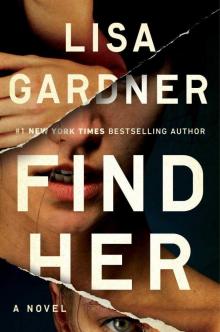 Find Her
Find Her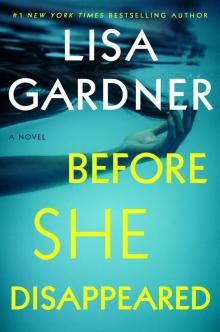 Before She Disappeared
Before She Disappeared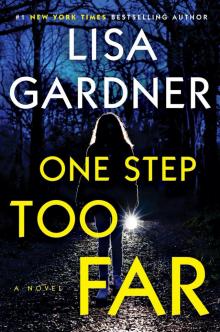 One Step Too Far
One Step Too Far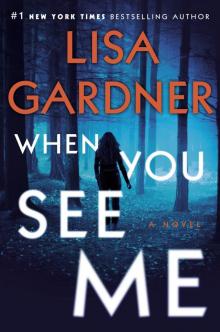 When You See Me
When You See Me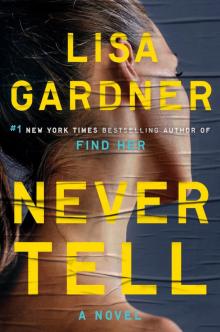 Never Tell
Never Tell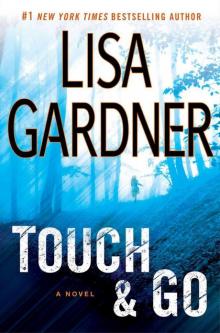 Touch & Go
Touch & Go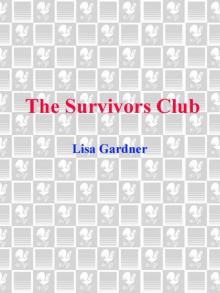 The Survivors Club
The Survivors Club MacNamara's Woman
MacNamara's Woman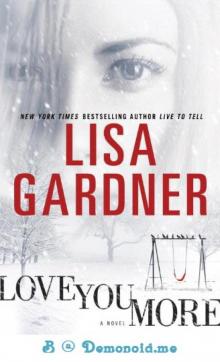 Love You More: A Novel
Love You More: A Novel Gone
Gone The Perfect Husband
The Perfect Husband Maggie's Man: A Family Secrets
Maggie's Man: A Family Secrets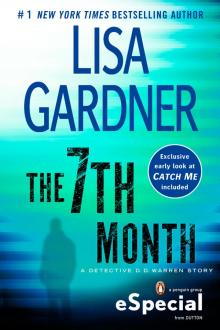 The 7th Month
The 7th Month The Neighbor
The Neighbor Hide
Hide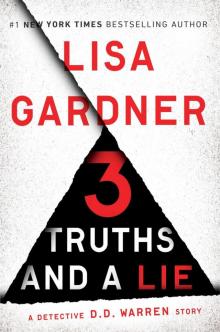 3 Truths and a Lie
3 Truths and a Lie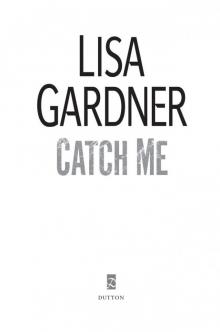 Catch Me
Catch Me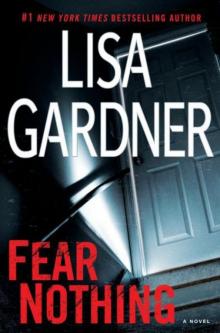 Fear Nothing: A Detective
Fear Nothing: A Detective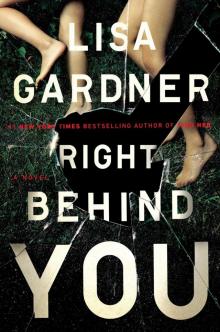 Right Behind You
Right Behind You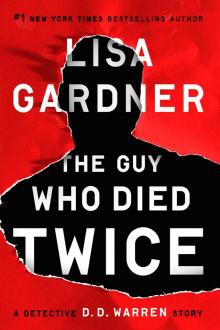 The Guy Who Died Twice
The Guy Who Died Twice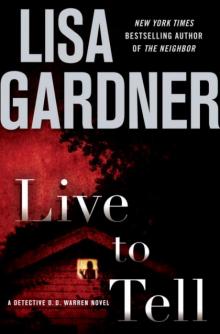 Live to Tell: A Detective D.D. Warren Novel
Live to Tell: A Detective D.D. Warren Novel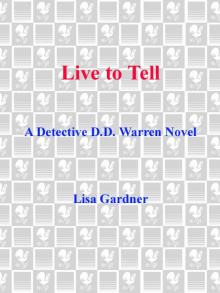 Live to Tell
Live to Tell Maggie's Man: A Family Secrets Novel
Maggie's Man: A Family Secrets Novel The Other Daughter
The Other Daughter Alone
Alone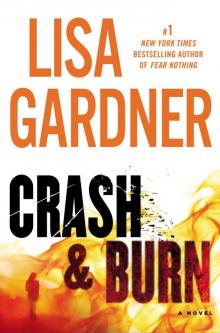 Crash & Burn
Crash & Burn The Detective D. D. Warren Series 5-Book Bundle
The Detective D. D. Warren Series 5-Book Bundle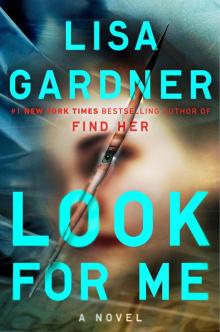 Look for Me
Look for Me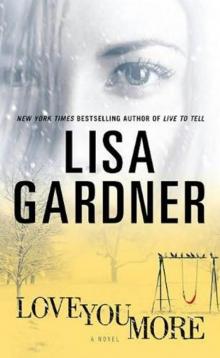 Love You More
Love You More The FBI Profiler Series 6-Book Bundle
The FBI Profiler Series 6-Book Bundle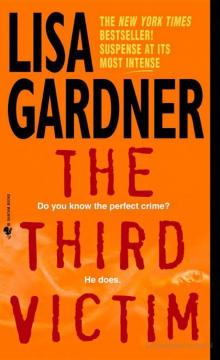 The Third Victim (Quincy / Rainie)
The Third Victim (Quincy / Rainie) Say Goodbye
Say Goodbye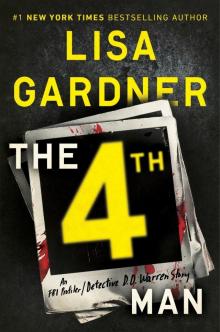 The 4th Man
The 4th Man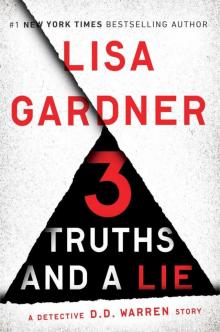 3 Truths and a Lie: A Detective D. D. Warren Story (Kindle Single)
3 Truths and a Lie: A Detective D. D. Warren Story (Kindle Single) Brandon's Bride
Brandon's Bride